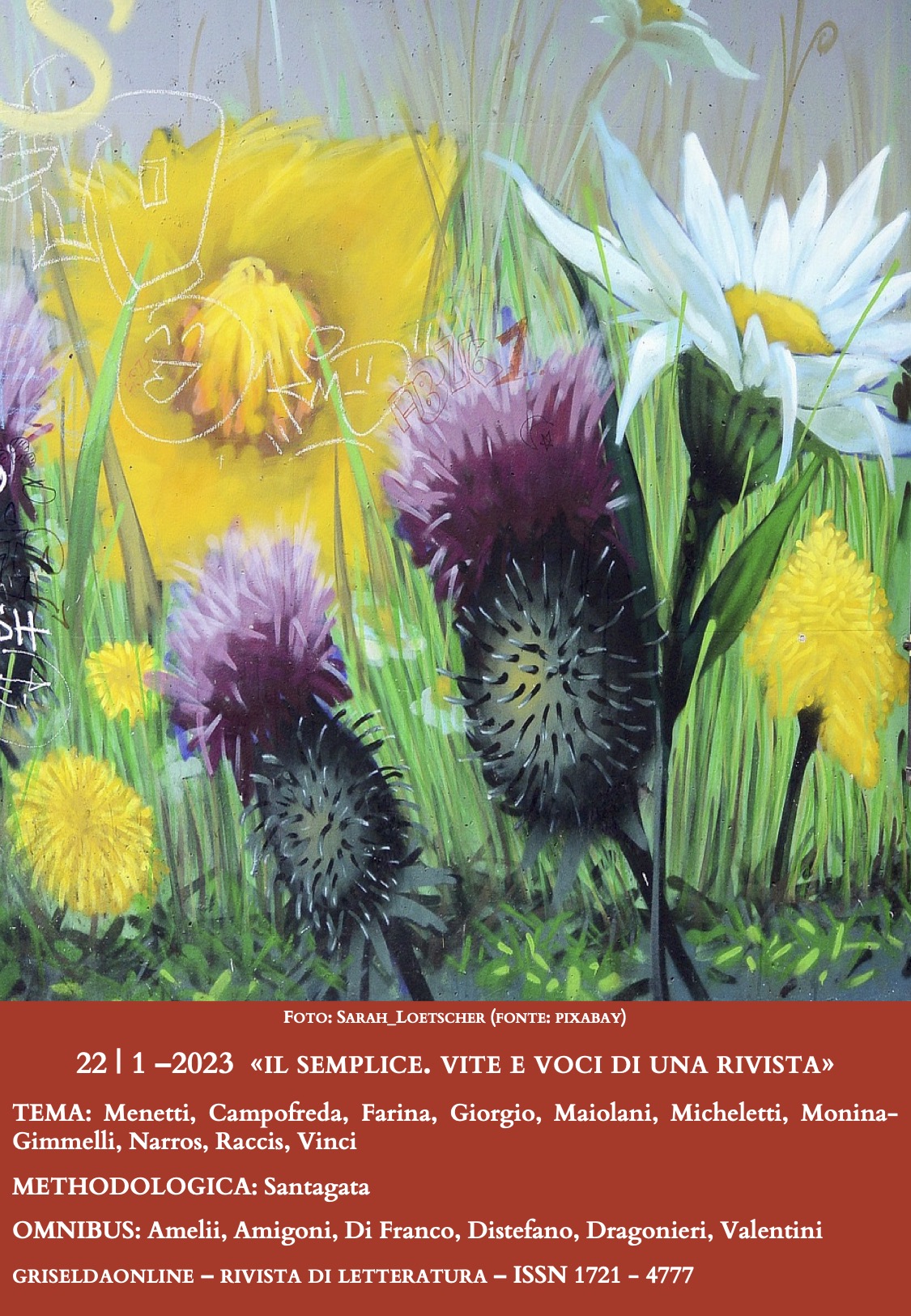Into the sublime. Conditions of imagination and feeling in Leopardi’s thought
DOI:
https://doi.org/10.6092/issn.1721-4777/15724Keywords:
creativity, habituation, imagination, Leopardi, sublimeAbstract
In a deep reflection recorded in his Zibaldone in 1829 – in five interconnected short notes written between mid-April and the end of May – Leopardi examines the conditions that can affect our faculty of imagining poetically and creatively, and even tragically extinguish it. He carefully considers the minute circumstances of human existence, which, in the context of his general theory of conformability, can either determine the sinking of the self into a state of death-in-life, far worse than death itself, or facilitate a vital life, rich in illusions, feelings, magnanimous actions, and poetry. Against the backdrop of this striking representation of the precariousness of existence, Leopardi develops an original reworking of the notion of sublime. This, in turn, appears to provide the conceptual foundations upon which his reflection on the tenuousness of imagination and feeling may be systematised as part of his thought.
Downloads
Published
How to Cite
Issue
Section
License
Copyright (c) 2023 Giovanni Vito Distefano

This work is licensed under a Creative Commons Attribution-ShareAlike 4.0 International License.





